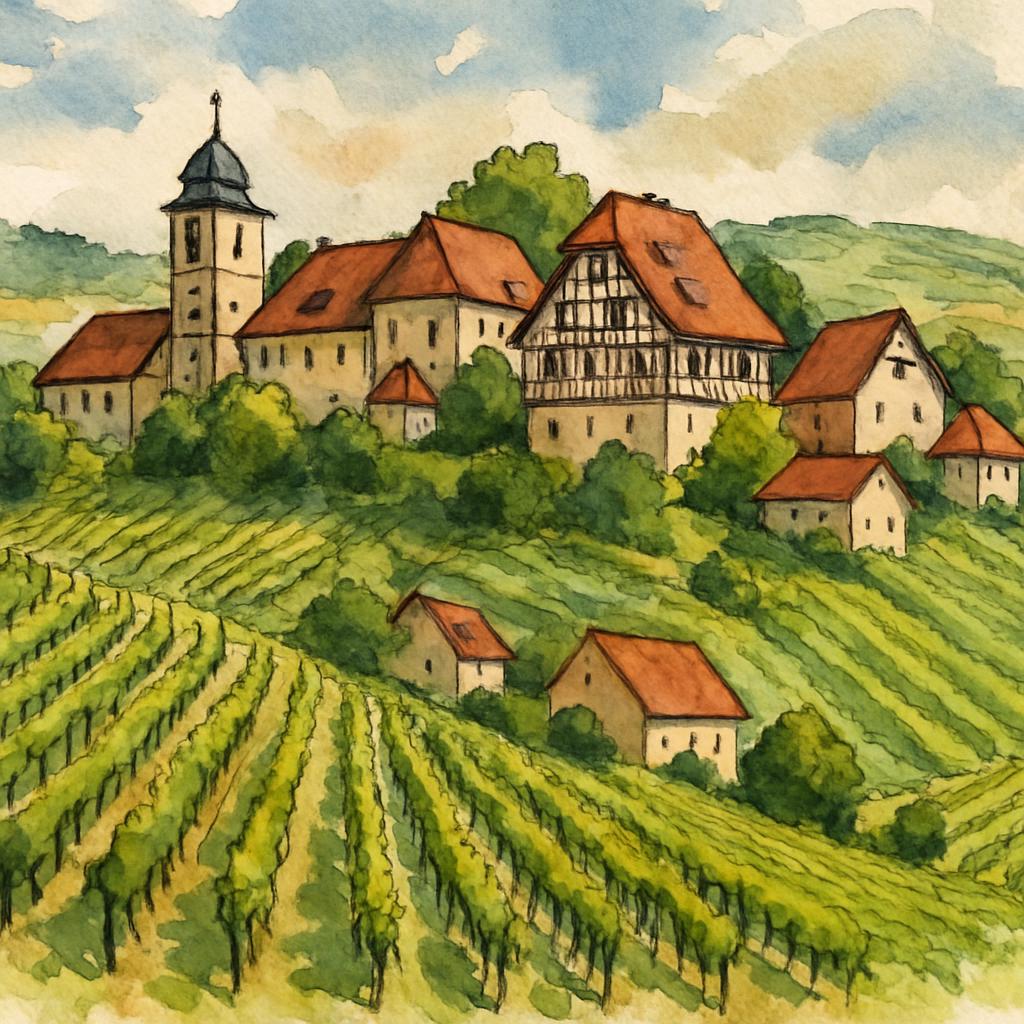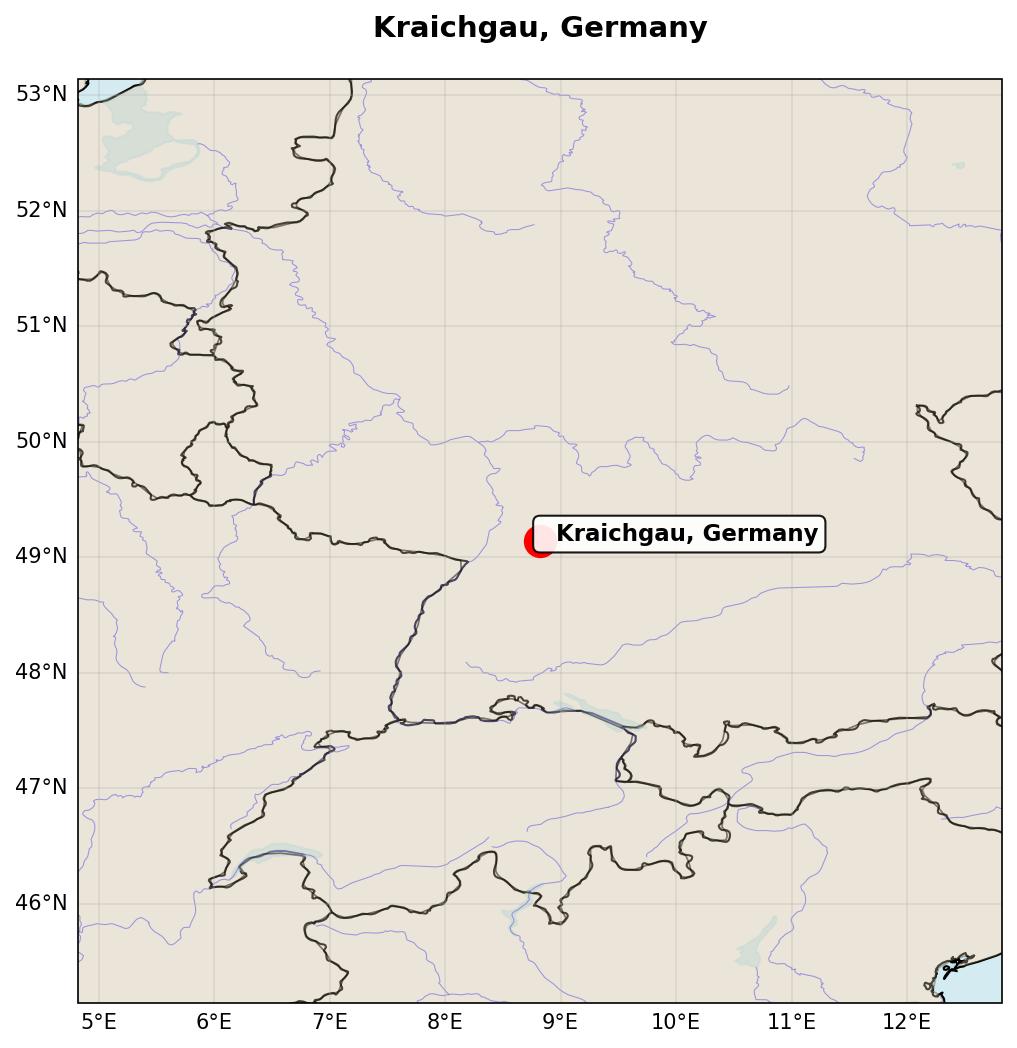Terroir of Kraichgau
Kraichgau is one of Germany's warmer wine regions, falling under the EU's Zone B classification. Positioned between 200 and 350 meters above sea level, it enjoys long, sunny summers and mild winters, with just the right amount of rainfall for a lengthy growing season. This climate is ideal for growing both crisp white wines and spicy, Burgundian-style reds.
The region's soils vary from clay and marl to shell limestone, often covered with loess or sandy loam. Noteworthy sites like Husarenkappe and Löchle highlight this diverse terroir. Husarenkappe, with its shallow, stony soils over marl, is known for producing mineral-rich Riesling. On the other hand, Löchle's heat-absorbing Keuper marl and clay are perfect for premium Pinot varieties, adding intensity and a unique savory-mineral quality to the wines.
Notable Wineries in Kraichgau
In the heart of Germany's Baden region, Kraichgau boasts a selection of noteworthy family-run wineries, celebrated for their handcrafted wines and intimate charm.
Among them, Weingut Schloss Ravensburg in Sulzfeld stands out, with a history dating back to the 16th century. This winery is renowned for its refined red and white wines, grown on historic hillsides.
Another gem, Weingut Heitlinger, combines tradition with modern techniques, producing vibrant Rieslings and elegant Pinot Noirs.
In Malsch, Weingut Klumpp is a pioneer of organic viticulture, crafting wines with an emphasis on terroir.
These wineries, with their focus on estate-grown grapes and sustainable practices, epitomize Kraichgau's dedication to quality and innovation.
Sustainable Winemaking in Kraichgau
Sustainability is at the forefront of Kraichgau's winemaking approach, with many vineyards adopting integrated pest management and planting cover crops to enhance biodiversity. This dedication to eco-friendly practices is reflected in the increasing number of vineyards receiving organic or biodynamic certification, aligning with a broader trend towards minimal intervention. By carefully managing rainwater and optimizing canopy management, growers are able to significantly reduce the need for chemical sprays.
In their commitment to sustainability, winemakers are investing in energy-efficient technology, with some turning to solar power and using lighter packaging to reduce their carbon footprint. This environmentally conscious mindset extends to the cellar, where natural yeast fermentations and gentle filtration methods are employed to preserve the land's unique characteristics. Kraichgau's producers are driven by a passion for quality and a deep respect for their diverse terroir, ensuring their wines reflect the region's distinct identity.
Wine Tourism in Kraichgau
Kraichgau, nestled in southwest Germany, offers a unique wine tourism experience, emphasizing serene landscapes and historical charm. Located along the Baden Wine Route, it provides easy access for exploration by car or bike.
The region's highlights include self-guided hikes and bike rides through quaint villages like Malsch and Bretten, leading to attractions such as the historic Schloss Ravensburg in Sulzfeld. Here, visitors can appreciate panoramic views of terraced vineyards.
Seasonal winery openings offer tasting rooms where guests can pair local wines with regional delicacies like asparagus and cheese. Throughout the year, Kraichgau hosts village festivals and open-cellar events, inviting visitors to engage with the area's vine-to-glass traditions.
With its gentle hills and rich winemaking history, Kraichgau presents a welcoming atmosphere for those seeking a leisurely and educational wine journey.


